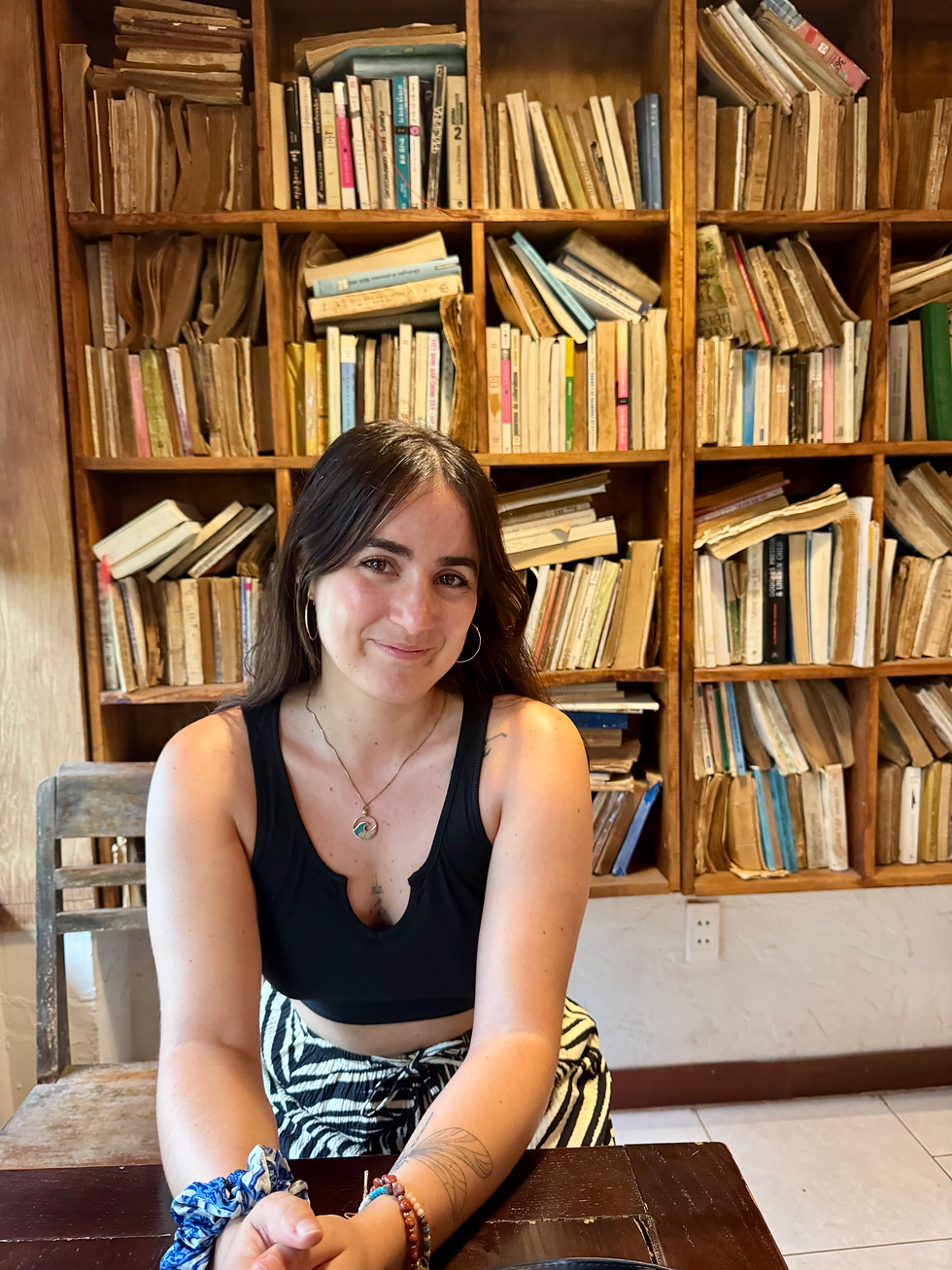Understanding Pretérito Indefinido (Spanish Past simple tense)
- yourspanishroadmap
- Jan 20, 2024
- 2 min read
Embarking on the journey to learn a new language can be both exciting and challenging, especially when it comes to mastering verb conjugations. For Spanish learners, one key aspect that often causes a few head-scratching moments is the Pretérito Indefinido (or "past simple"). Today, we'll take a closer look at the Pretérito Indefinido. ¡Vamos!
Understanding Pretérito Indefinido
The Pretérito Indefinido, also known as the Simple Past, is a verb tense used to describe completed actions in the past. Be aware that its counterpart, the Pretérito Perfecto (he comido, he ido, he visitado), emphasizes the relevance of an action to the present!
The Pretérito Indefinido focuses on events that are entirely in the past.
Conjugating Regular Verbs
Let's start with the basics – regular verb conjugations in the Pretérito Indefinido. The good news is that these conjugations follow a fairly straightforward pattern, depending on whether the verb is an -ar, -er, or -ir type.
-AR Verbs:
Hablar (to speak)
Yo hablé (I spoke)
Tú hablaste (You spoke)
Él/Ella/Usted habló (He/She/You spoke)
Nosotros/Nosotras hablamos (We spoke)
Vosotros/Vosotras hablasteis (You all spoke - used in Spain)
Ellos/Ellas/Ustedes hablaron (They/You all spoke)
-ER Verbs:
Comer (to eat)
Yo comí (I ate)
Tú comiste (You ate)
Él/Ella/Usted comió (He/She/You ate)
Nosotros/Nosotras comimos (We ate)
Vosotros/Vosotras comisteis (You all ate - used in Spain)
Ellos/Ellas/Ustedes comieron (They/You all ate)
-IR Verbs:
Vivir (to live)
Yo viví (I lived)
Tú viviste (You lived)
Él/Ella/Usted vivió (He/She/You lived)
Nosotros/Nosotras vivimos (We lived)
Vosotros/Vosotras vivisteis (You all lived - used in Spain)
Ellos/Ellas/Ustedes vivieron (They/You all lived)
Irregular Verbs
Of course, Spanish wouldn't be as much fun without a few irregularities. Some commonly used verbs have unique conjugations in the Pretérito Indefinido:
Ser (to be)
Yo fui (I was)
Tú fuiste (You were)
Él/Ella/Usted fue (He/She/You were)
Nosotros/Nosotras fuimos (We were)
Vosotros/Vosotras fuisteis (You all were - used in Spain)
Ellos/Ellas/Ustedes fueron (They/You all were)
Ir (to go)
Yo fui (I went)
Tú fuiste (You went)
Él/Ella/Usted fue (He/She/You went)
Nosotros/Nosotras fuimos (We went)
Vosotros/Vosotras fuisteis (You all went - used in Spain)
Ellos/Ellas/Ustedes fueron (They/You all went)
(Yesss, they're the same!)
Hacer (to do/make):
Yo hice (I did/made)
Tú hiciste (You did/made)
Él/Ella/Usted hizo (He/She/You did/made)
Nosotros/Nosotras hicimos (We did/made)
Vosotros/Vosotras hicisteis (You all did/made - used in Spain)
Ellos/Ellas/Ustedes hicieron (They/You all did/made)
Poder (to be able to/can):
Yo pude (I could/was able to)
Tú pudiste (You could/were able to)
Él/Ella/Usted pudo (He/She/You could/was able to)
Nosotros/Nosotras pudimos (We could/were able to)
Vosotros/Vosotras pudisteis (You all could/were able to - used in Spain)
Ellos/Ellas/Ustedes pudieron (They/You all could/were able to)
Examples in context
Now, let's put these conjugations into context with a few examples:
Ayer, yo comí una deliciosa paella en Valencia. (Yesterday, I ate a delicious paella in Valencia.)
Nosotros bailamos toda la noche en la fiesta. (We danced all night at the party.)
El año pasado, tú fuiste a México de vacaciones. (Last year, you went to Mexico on vacation.)
Mis amigos y yo vivimos juntos durante la universidad. (My friends and I lived together during college.)
Conclusion!
Mastering the Pretérito Indefinido might take a bit of practice, but with dedication and a willingness, you'll soon find yourself expressing past events with confidence. ¡Buena suerte! (Good luck!)



Comments